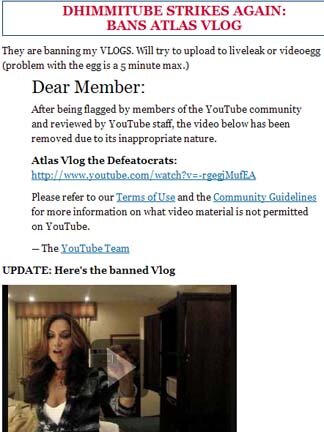
Army Squeezes Soldier Blogs, Maybe To Death
The U.S. Army has ordered soldiers to stop posting to blogs or sending personal e-mail messages, without first clearing the content with a superior officer, Wired News has learned. The directive, issued April 19, is the sharpest restriction on troops’ online activities since the start of the Iraq war. And it could mean the end of military blogs, observers say.
Military officials have been wrestling for years with how to handle troops who publish blogs. Officers have weighed the need for wartime discretion against the opportunities for the public to personally connect with some of the most effective advocates for the operations in Afghanistan and Iraq — the troops themselves. The secret-keepers have generally won the argument, and the once-permissive atmosphere has slowly grown more tightly regulated. Soldier-bloggers have dropped offline as a result.
The new rules (.pdf) obtained by Wired News require a commander be consulted before every blog update.
Army Regulation 530–1: Operations Security (OPSEC) (.pdf) restricts more than just blogs, however. Previous editions of the rules asked Army personnel to “consult with their immediate supervisor” before posting a document “that might contain sensitive and/or critical information in a public forum.” The new version, in contrast, requires “an OPSEC review prior to publishing” anything — from “web log (blog) postings” to comments on internet message boards, from resumes to letters home. (My emphasis)
Failure to do so, the document adds, could result in a court-martial, or “administrative, disciplinary, contractual, or criminal action.”
Some people might point out that soldiers’ letters were censored in World War I and II. But the practice was discontinued by the early months of the Korean conflict, and letters by service personnel in Vietnam were not screened at all. Of course, the unfettered flow of information from the battlefield can hasten the public’s disillusionment with an already unpopular foreign war, and you might expect certain La-Z-Boy Leonides in the blogsphere to trumpet this change. But even some bloggers who support the Iraq war are dismayed by this blackout.
The revised regulation were first released by Wired News blogger Noah Shachtman, and his report on the serious crackdown on soldiers’ writings is stirring the blogosphere into an uproar.
Matt at Blackfive writes:
The Bottom-Line to the this bad piece of regulation: The soldiers who will attempt to fly under the radar and post negative items about the military, mission, and commanders will continue to do so under the new regs. The soldiers who’ve been playing ball the last few years, the vast, VAST, majority will be reduced. In my mind, this reg will accomplish the exact opposite of its intent. The good guys are restricted and the bad continue on…
Operational Security is of paramount importance. But we are losing the Information War on all fronts. Fanatic-like adherence to OPSEC will do us little good if we lose the few honest voices that tell the truth about The Long War.
Setting aside the question of whether soldiers who report painful truths about the situation in Iraq are “bad guys”, you can’t really argue with the military’s concerns about operational security. Except that, according to Iraqslogger:
In what could be considered a failure of information security, the complete text of the US Army’s new operational security regulations was posted on the Internet today.
Even more ironically, the first “major revision” listed designates “For Official Use Only”–a phrase found in bold on the front cover–”as the standard marking for all unclassified products that meet one or more of the exemptions of the Freedom of Information Act (FOIA), and which if released to the public, could cause harm to Army operations or personnel.”
The new regulation currently causing controversy requires soldiers to consult with superiors before posting any comment on a blog, and one has to wonder if this new reign on soldiers’ speech sparked one to share the document.
The impracticality (not to mention inhumanity) of the regulation, and the incompetent way it was introduced aside, who thinks this measure is designed to keep the truth about conditions in Iraq away from:
 This guy…
This guy…
 Or this guy?
Or this guy?
My Country Right, Wrong or Decline to State | 10 Comments »


 This guy…
This guy… Or this guy?
Or this guy?